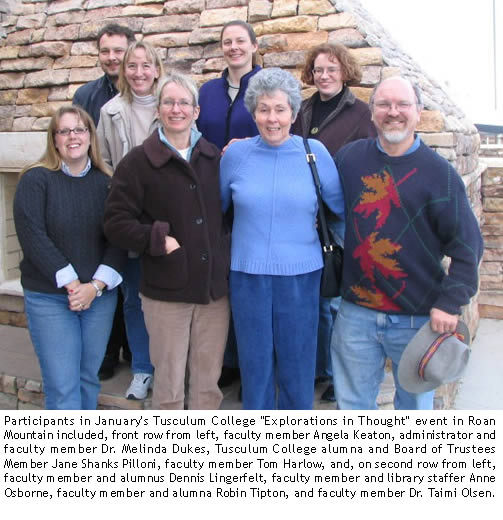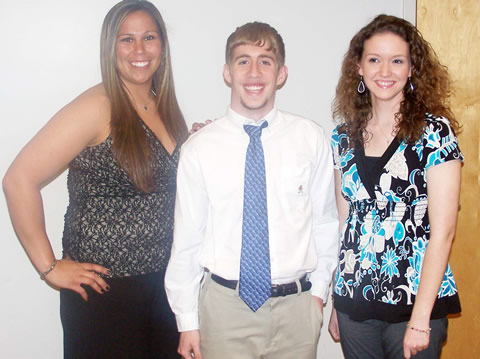
The winners of this year’s Curtis and Billie Owens Literary Awards at Tusculum College, pictured above, were among student readers who presented works of creative fiction on Tuesday evening at Tusculum College during an English department public reading event and ceremony in which the Owens Awards were presented.
Curtis Owens was a 1928 graduate of Tusculum College who went on to a teaching career at what is now Pace University in New York. He and his wife established the Owens Award at his alma mater to encourage and reward excellence in writing among Tusculum College students.
Winners this year are, from left, Megan DuBois, Chino, Calif., who won in the poetry category; Will Chilcutt, Cross Plains, Tenn., who won for fiction; and Ashley Douglas, Clinton, Tenn., who won in the essay category. Other readers who presented were Jena Breckenridge, Val Foote, Brittany Holmes and Whittney Ransom. Presenting the Owens Award checks to the three winners was Interim President Dr. Russell Nichols.



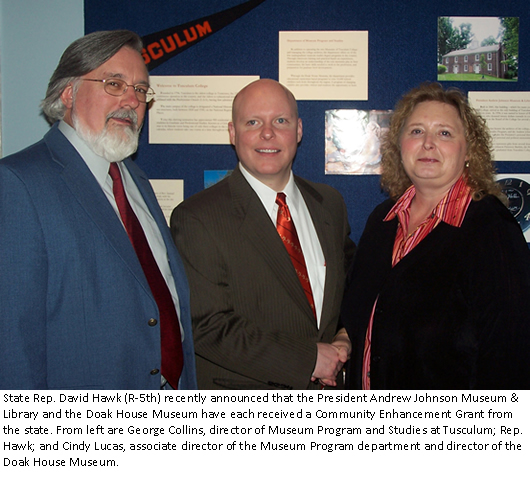
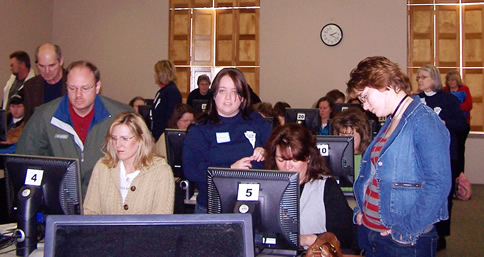
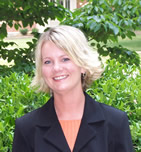 Rebecca Muncy ’05, Associate Director for Alumni and Parent Relations, is the recipient of a New2CASE scholarship presented by the Council for Advancement and Support of Education (CASE).
Rebecca Muncy ’05, Associate Director for Alumni and Parent Relations, is the recipient of a New2CASE scholarship presented by the Council for Advancement and Support of Education (CASE).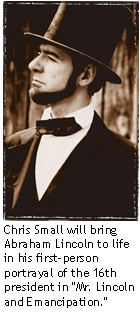 From the worn edges of his top hat to the tips of his black shoes, Chris Small is dedicated to bringing Abraham Lincoln to life for the audiences of his living history portrayals of the 16th president.
From the worn edges of his top hat to the tips of his black shoes, Chris Small is dedicated to bringing Abraham Lincoln to life for the audiences of his living history portrayals of the 16th president.